The UK transport industry has been hit hard by the Covid-19 pandemic, and continues to face some serious challenges. However, having spoken to the UK MD’s of all eight major truck manufacturers, Commercial Motor editor Will Shiers found positive signs of recovery.
Mike Belk, MD, Mercedes-Benz Trucks UK
“It certainly hasn’t been as dire as some of the doomsters and gloomsters were suggesting,” said Mike Belk, MD of Mercedes-Benz Trucks, when we asked him how he thinks the industry is coping with Covid-19. “The RHA are saying that one in every two trucks are sat idle. I don’t know where they get that from, because that’s certainly not what we are seeing.”
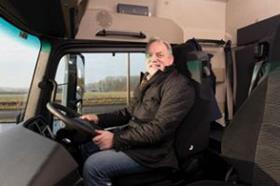
Mercedes-Benz’s workshops have only experienced a 15% to 20% drop in work. “It could be that the impacts of the lockdown have been disproportionately felt, depending on where you sit in the trucking food chain,” Belk suggested. “The bigger guys, the 3PLs, have laid off their subbies and done their best to redeploy assets onto other contracts. Whereas other sectors, which were dependent on customer activity – like petrol distribution – have been harder hit.”
Belk said that the industry has shown definite signs of recovery over the past fortnight. “At the start, people went into a lockdown mentally as well as practically,” he explained. “Everyone thought ‘oh sh*t, let’s pull the duvet over our heads and not do much’, but gradually we are emerging from that. Although there is a huge amount of uncertainty still, the fear and anxiety is dropping away.”
While Mercedes experienced an immediate decline in new trucks orders, Belk confirmed that the situation is now improving “as we see more confidence coming back into the market”. He said: “Some sectors have had an increase in business – like supermarket food distribution. Also, the parcels sector is getting a boost out of the crisis, and is therefore fast-forwarding its acquisition plans.
“We have taken a substantial order in the last week, which is a reflection of a change in the dynamic of the marketplace. But that’s not to say that others haven’t been badly hit, and we will probably have a period of sustained lower sales activity, but it is very disproportionately split across the market.”
Laurence Drake, MD, DAF Trucks
DAF Trucks MD Laurence Drake is positive about the UK truck industry’s continued recovery from Covid-19, and when you hear some of his figures, it’s easy to understand why.
“Our first-time pick rate on parts is back up to 98%,” he said. “And as for DAFAid, no dealer or technician refused any jobs in the last five weeks.”

But perhaps the figure he should be happiest with is new truck orders. “Sales initially dropped off a cliff, and we were down to 5% of what we would normally do,” he admitted, “but this week we are running at 45% of what our usual order intake is. It’s a low start but it’s going in the right direction.”
There is more positive news in terms of dealer activity too. “Parts and service business levels dropped to about 65% when we first went into this, and now they’re running at about 75%,” he said.
So, considering these figures, Drake also struggles to understand how the RHA believes 50% of the UK truck parc is currently sat idle. “I’m not saying it’s wrong. It’s just that in my DAF world I don’t see it,” he said.
Robert Grozdanovski, MD, Volvo Trucks UK & Ireland
“Our factories have reopened, which is great news for us,” said Robert Grozdanovski, MD of Volvo Trucks UK & Ireland. “Admittedly it’s at a lower level than before, but then building trucks with social distancing measures in place is not easy, and takes some time to adapt to.”
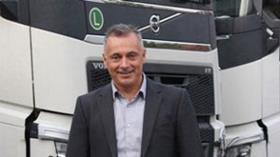
Grozdanovski explained that on the first day just nine finished trucks rolled off the line, followed by 18 on day two. Volvo expects this to increase to 40 per day in the coming weeks, which although a far cry from the pre-Covid-19 level of 100-plus vehicles per day, is nonetheless a huge step in the right direction.
There is positive news to report in the UK too, with activity levels in its workshops increasing. “From week 13 workshop activity started to drop, and drop, and drop, but then it levelled off for three weeks,” he explained. “However last week we witnessed a small upturn, and although it is tiny, it proves that we hit rock-bottom, and maybe now we will see a gradual recovery going forwards.” As a consequence, Volvo is bringing back some technicians that had been furloughed.
Martin Hay, MD, Scania Great Britain
Scania Great Britain MD Martin Hay says there are clear signs that the UK truck industry is getting back on its feet, and highlighted the data collected by its connected services as evidence. “We are seeing week-on-week increases in miles travelled,” he explained, “with last week showing a 5% growth.”
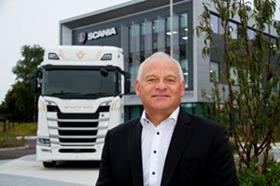
It’s not just mileages that are increasing, as so too are the number of trucks on the road. He said some customers who had initially SORNed vehicles are starting to put them back into service, and this is reflected in both Scania’s workshop activity and demand for spare parts.
Another positive sign noted by Hay are the conversations Scania is having with its fleet customers, and that in the past fortnight some fleets have started to plan for their Christmas peaks, resulting in an increased order intake.
While the supermarkets and parcel carriers appear to be particularly buoyant, Hay believes construction will be the next sector to show signs of recovery. “Construction appears to be starting-up again in a phased manner,” he explained. “The HS2 contracts have been awarded, so companies are starting to buy trucks again to fulfil these requirements. And that’s really positive.”
Thomas Hemmerich, MD, MAN Truck & Bus UK
At the start of lockdown, MAN introduced new working practices at its dealership workshops. In addition to stringent new distancing measures to help keep its staff safe, it also reduced shifts, stopped weekend working, and furloughed a number of technicians.
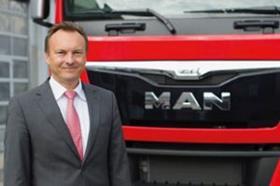
“But after four weeks, workshops are much busier than expected,” explained MAN Truck & Bus UK
MD Thomas Hemmerich. “The workload is increasing, so we have brought 30% of technicians out of furlough, and even reintroduced two-shift systems at some workshops.”
The increase it workshop utilisation is, according to Hemmerich, one of a few indicators that the industry is starting the slow recovery process. “There is definitely some light at the end of the tunnel,” he said.
Some of that light seems to be shining on MAN’s order book. While Hemmerich described April as “a disaster”, he said that things are changing for the better. Retail sales remain slow, but key account business is strong. “We have had a couple of nice orders,” he said. “The parcel and food industry is flying right now. Construction business has dried-up completely, but will pick up in the second half of May and June.
“So there is definitely more positive news, which is great. Now let’s hope that the lockdown measures are not released too fast, as a second wave would be a disaster.”
Carlos Rodrigues, MD, Renault Trucks UK and Ireland
“We are not at the end of the tunnel yet, but we can definitely see some light now,” said Carlos Rodrigues, MD of Renault Trucks UK and Ireland.

Rodrigues cited vehicle mileage as a good example of this, saying that miles covered by Renault trucks in the UK have increased at a rate of between 15% and 20% for the last three weeks. “No, we are not back to where we were, but it’s definitely a step in the right direction,” he said.
As a result of “the cogs starting to turn a bit”, Renault’s workshops are getting busier. And to cope with the growth in demand for its services, it is releasing some of its technicians from furlough.
Like our other MDs, Rodrigues said retail truck sales took a dive at the start of lockdown, and while these orders are yet to recover, it’s a different story with fleet business. “At this time of year our customers prepare for Christmas, and this year is no different,” he said. “There are definitely some positives out there, which we see as the start of an upwards trend. Well, it’s better than the last five weeks anyway, and we’ll take that.”
Sascha Kaehne, business director for the UK and Ireland, Iveco
Viewed from lockdown in Madrid, Iveco’s business director for the UK and Ireland Sascha Kaehne said the UK market is definitely looking up.

“If we are looking for green shoots, it depends on how close you look, and where you search for them,” he said. “I think the period where we just saw everything stop, with downward expectations, and people adjusting for the worst, is definitely over from our point of view. We have seen the worst of it.”
Iveco has managed to keep all of its dealerships open throughout the crisis, albeit with the introduction of safety measures, adjustments in working procedures, and reduced opening hours.
According to Kaehne, at the peak of the crisis workshops were operating at 50% capacity, but this figure has since risen to 66%.
Iveco’s new vehicle orders have fallen by two-thirds when compared with pre-Covid-19 levels, with sales largely in the supermarket, home delivery, municipal and utility sectors.
While Kaehne believes the impact of Covid-19 will be “longer and deeper than we think”, he stressed that the situation is improving on a weekly basis, and he is confident that the industry will make a full recovery. “We can come back to normal levels, even if we have to consider that normal is not what we experienced for the last few years,” he said.
Pete Murphy, MD, Isuzu Truck (UK)
“It’s a crazy world at the moment. It’s like we’ve all become extras in a Hollywood disaster movie,” exclaimed Isuzu Truck (UK)’s MD Pete Murphy. “If at the back end of last year someone had said to me would you settle for just having Brexit to worry about, with the benefit of hindsight I would have accepted it like a shot.”
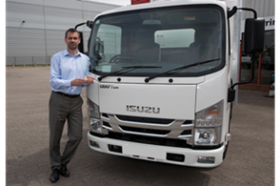
As the UK entered lockdown, Isuzu experienced a 92% reduction in orders for new trucks, and its parts business was reduced by half. He said the workshops saw 80% less throughput, yet remained open, “providing brilliant support and vital cover to transport operators”.
Despite Covid-19 “cutting very deep”, Murphy confirms that “some glimmers of light are emerging over the horizon”. He cited the positive conversations he’s starting to have with fleets as an example of this. “It’s mainly stuff we were discussing pre-lockdown, but it’s positive that we are in discussions again. So, that’s very welcome,” said Murphy, who confirmed that Isuzu Truck’s Italian plant reopened last week.
Referring to those glimmers on the horizon again, Murphy concluded: “I think it is important that we start to look towards the light, no matter how far away in the distance it is. It’s important that we all focus in that area.”
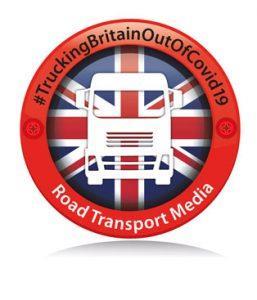
- For a full version of these interviews see Commercial Motor's May 14 issue.













